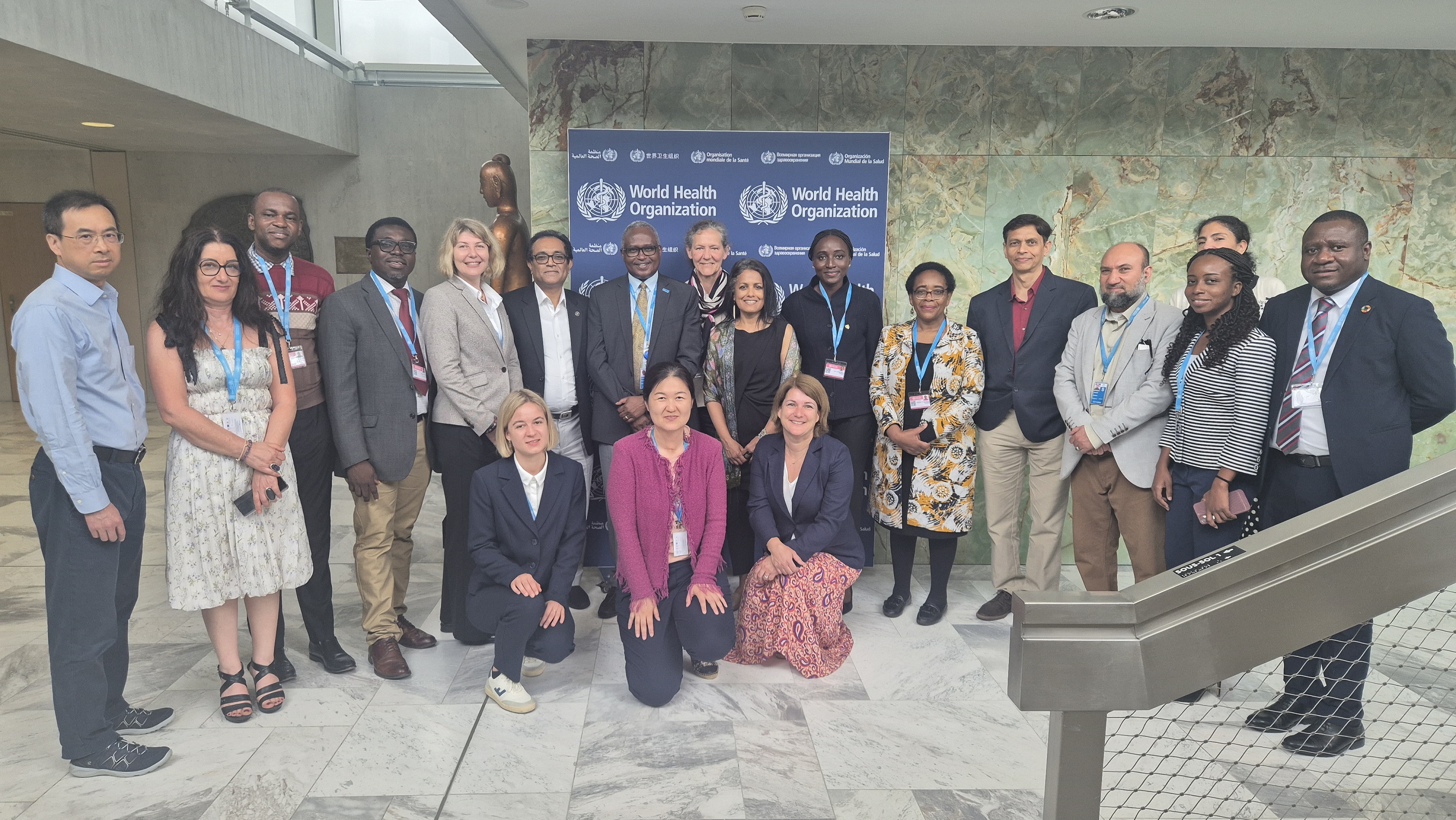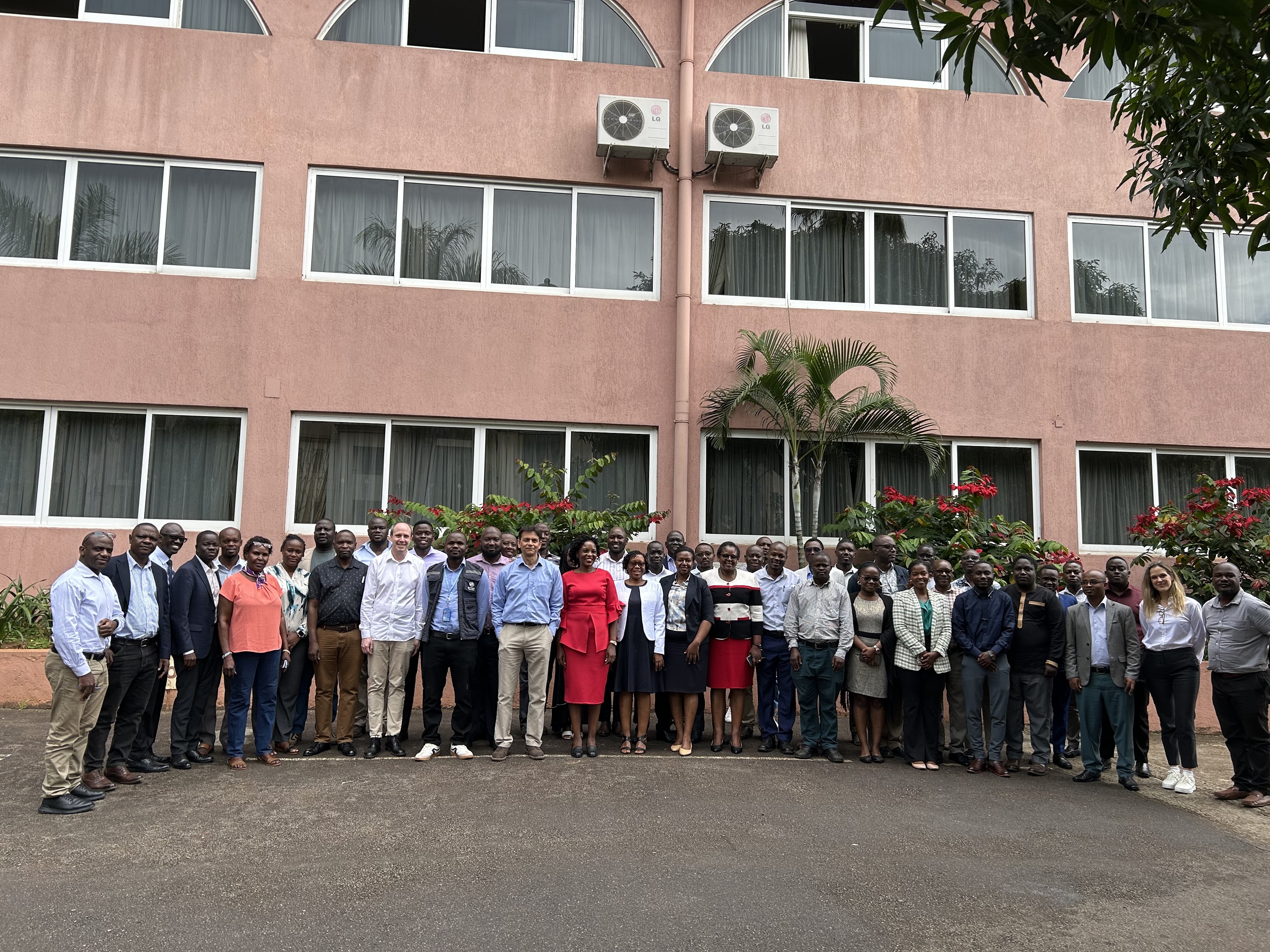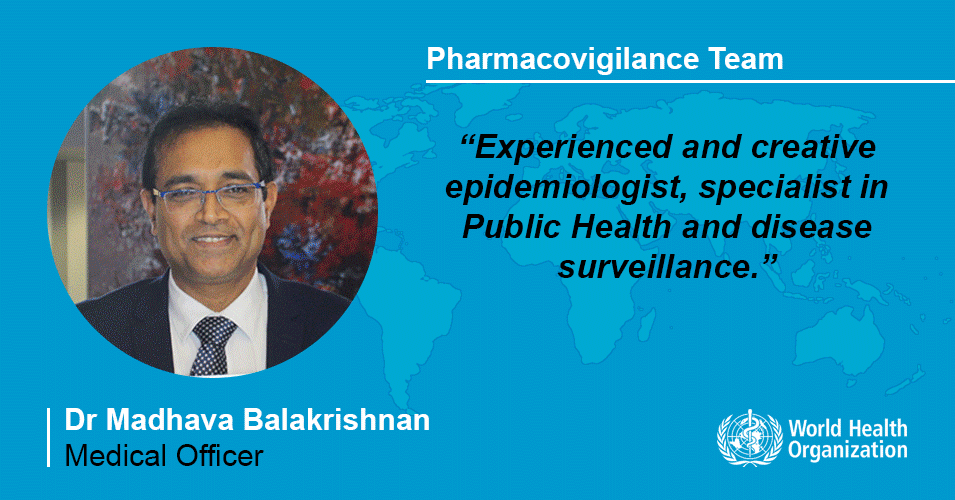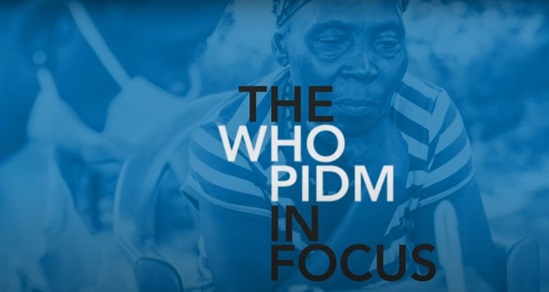What is Pharmacovigilance?
Medicines and vaccines have transformed the prevention and treatment of diseases. In addition to their benefits, medicinal products may also have side effects, some of which may be undesirable and / or unexpected. Pharmacovigilance is the science and activities relating to the detection, assessment, understanding and prevention of adverse effects or any other medicine/vaccine related problem.
All medicines and vaccines undergo rigorous testing for safety and efficacy through clinical trials before they are authorized for use. However, the clinical trial process involves studying these products in a relatively small number of selected individuals for a short period of time. Certain side effects may only emerge once these products have been used by a heterogenous population, including people with other concurrent diseases, and over a long period of time.
The WHO PIDM in Focus - Building a global community
Workshop on the Assessment of Risk Management Plans, WHO, Geneva, 3 – 4 June 2025

The WHO Pharmacovigilance team (PVG), in close collaboration with the Paul-Ehrlich-Institut (PEI), Germany, hosted a workshop on Risk Management Plan (RMP) Assessment at WHO headquarters, Geneva, from 3 to 4 June 2025. Assessors from four African National Regulatory Authorities representing the departments of product registration and pharmacovigilance from Ghana, Rwanda, Sierra Leone and Zimbabwe participated.
The workshop introduced the Model RMP Assessment Tools developed by WHO PVG and provided an opportunity to pilot these and receive feedback from the countries based on their practical application, with the goal of refining and finalizing the tools.
VigiMobile training in Uganda
The WHO Pharmacovigilance Team, in collaboration with the Uppsala Monitoring Centre, Sweden, facilitated a national training on the VigiFlow and VigiMobile tools on 22-23 May 2025 for over 50 vaccine safety focal points at Entebbe, Uganda. Participants included representatives from the Uganda National Regulatory Authority, Immunization Program, regional referral hospitals, and the WHO Country Office.
This training marks another significant milestone in WHO’s ongoing efforts to support low- and middle-income countries in strengthening electronic reporting of vaccine safety events. The adoption of these tools enables more efficient, accurate, and timely data capture and transmission from the field to national systems. It also ensures that critical safety data are simultaneously accessible to both national regulators and immunization programs.
Moreover, the improved speed and accuracy of data flow contribute to faster submission of safety information to the WHO global safety database, reinforcing global pharmacovigilance efforts.

WHO Pharmacovigilance Partners’ Meeting

A WHO Pharmacovigilance Partners’ Meeting was organized on 13 October 2024 in New Delhi, India on the margins of the 19th International Conference of Drug Regulatory Authorities (ICDRA). 147 people from 68 countries participated in this face-to-face meeting, to review the WHO Global Smart Pharmacovigilance Strategy. A synopsis of the draft Strategy is available. The revised Strategy will be available in the coming months.
News
All →Publications
All →
Protocol on estimation of Guillain-Barré syndrome background rates in general population in low- and...
Background rates of possible adverse events are crucial to monitoring vaccine safety as they help separate potential safety signals following vaccination...

WHO pharmaceuticals newsletter - No. 1, 2025
The WHO pharmaceuticals newsletter provides you with the latest information on the safety of medicinal products and regulatory actions taken by authorities...

WHO pharmaceuticals newsletter - No. 5, 2024
The WHO pharmaceuticals newsletter provides you with the latest information on the safety of medicinal products and regulatory actions taken by authorities...

On the front page also: Protocol identifying number: ERC.0004184. Use of this protocol: As a master protocol to be approved by WHO Ethical Review Committee...

Landscape analysis of pregnancy exposure registries in low- and middle-income countries
Many vaccines and drugs hold the promise of reducing mortality and morbidity among pregnant women and infants living in low- and middle-income countries...

Guidance for clinical case management of thrombosis with thrombocytopenia syndrome (TTS) following...
Thrombotic Thrombocytopenia Syndrome (TTS) has emerged as a new adverse event following immunization in individuals vaccinated with COVID-19 non-replicant...
About us
The WHO Pharmacovigilance team strives to ensure safer use of medicines and vaccines throughout the life cycle of the products. We produce reliable, balanced information on the benefits and risks of medicines and vaccines, which enhances people’s care and safety.
Team Lead: Dr Shanthi Pal

Among our activities we are:
- Developing norms, standards and guidelines.
- Providing credible safety and regulatory information on medicines.
- Appointing and convening global advisory committees of experts to review and provide guidance on the safety of medicines and vaccines.
- Hosting global networks such as the WHO Programme for International Drug Monitoring (PIDM) to promote pharmacovigilance in countries.
- Establishing and maintaining WHO Collaborating centres (WHO CCs) to provide technical support to countries in pharmacovigilance.
- Countering vaccine-misinformation about vaccines through the Vaccine Safety Net (VSN), which facilitates the access to reliable information on vaccine safety.
- Providing training programmes to build and strengthen the capacity of national safety surveillance systems for medicines and vaccines .
- Developing innovative methods and tools to generate new evidence on the safety of medicinal products

